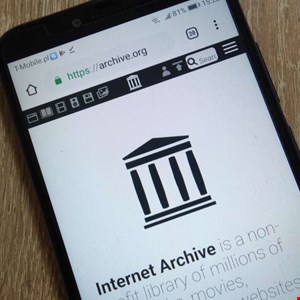- What to Do If You Book a Hotel or Airbnb and It Turns Out to Be a Scam | McAfee Blog
- Cómo evitar la fuga de cerebros en TI
- Is ChatGPT Plus still worth $20 when the free version packs so many premium features?
- How this 'FinOps for AI' certification can help you tackle surging AI costs
- ChatGPT can record, transcribe, and analyze your meetings now
Internet Archive and Wayback Machine Resurrect After DDoS Wave

Most of Internet Archive’s services have resumed after a series of distributed denial-of-service (DDoS) attacks took the world’s largest digital library’s website offline several times over the past few days.
In a blog post published on October 18, the non-profit confirmed that many services are now up and running, including its Wayback Machine, Archive-It, scanning and national library crawls, email, blog, helpdesk and social media communications.
“Our team is working around the clock across time zones to bring other services back online. In coming days more services will resume, some starting in read-only mode as full restoration will take more time,” the organization added.
Internet Archive’s Data Is “Safe”
The digital library also suffered a JavaScript-based website defacement showing a message in which a mysterious threat actor claimed to have breached 31 million unique records from the Internet Archive’s IT systems, including email addresses, screen names and bcrypt password hashes.
The breach was confirmed on October 9 by data breach notification service Have I Been Pwned, and later by Internet Archive itself.
However, Internet Archive founder Brewster Kahle said on X October 11 that “data is safe.”
In its latest blog post, the non-profit further confirmed that “the stored data of the Internet Archive is safe.”
Neither Kahle nor the non-profit communicated the measures they took to ensure the previously exposed data was now safe.
“We’re taking a cautious, deliberate approach to rebuild and strengthen our defenses. Our priority is ensuring the Internet Archive comes online stronger and more secure,” said the non-profit in its public statement.
“As a library community, we are seeing other cyber-attacks—for instance the British Library, Seattle Public Library, Toronto Public Library, and now Calgary Public Library. We hope these attacks are not indicative of a trend,” it added.
On X, Kahle also prompted his community to donate to Internet Archive.

